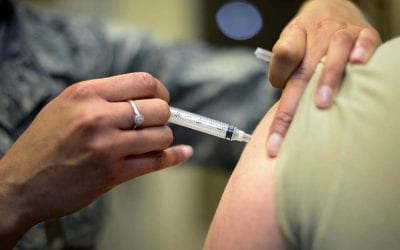
Many relieve the difficulties of stress at work and home with periodic vacations.
For some, however, the minute they see TSA at the airport, their stress level sky-rockets. When the plane lands, lifting their over-packed bag from the overhead bin they wrench their back. After a day touring they find the local water and beautiful fresh fruit they bought from the street stand did their dirty deed. They’ve got the “trots.” These are travel scenarios I’ve heard often.
Travel illness and stress can “kill” vacations. Here are some suggestions to travel healthy and stress-free.
• Learn about your destination. Many countries, while generally safe to visit, do have some health risks. A great place to start your research is the US State Department’s Country Specific Information. By learning about your destination, and taking appropriate action you can protect your health and reduce your anxiety about traveling.
• See a doctor before you travel. The CDC suggests the “best time to see the doctor is at least 4 to 6 weeks before your trip.” That will normally give you enough time to get the required immunizations.
Doctors can help you plan ahead for illnesses or injuries, by prescribing antibiotics, and medication to treat diarrhea, and other illnesses, for your trip, “just in case.” I follow the CDC guidelines, and take a “Travel Health Kit” with me. Take your prescriptions in their original, labeled containers to prevent problems with your destination’s customs and border enforcement officials.
• Consider travel medical insurance. This can be critical, and relieve the stress from worrying about how you’d pay for travel medical bills. In the US, many typical medical insurance plans and Medicare don’t cover costs of medical care outside the US. Others reimburse you, but only at a small percentage of your costs.
• Don’t eat airplane food. Pack your own meal. Airplane snacks are rarely more than sugar and junk carbs. Even full airline meals are rarely healthy or good quality. My wife and I take along sandwiches, fruit, salad, and crudités vegetables for our flights. We take packets of “mayo,” and salad dressing in our TSA “baggie.” We buy water at the airport, to ensure we have enough.
• Hydrate while flying to help prevent jet lag. Don’t drink caffeine or alcohol. Every doctor I speak with, about this tells me that in addition to the diuretic effect of these beverages, drinking them results in sleep disruption, deepening “jet lag,” and making your flight more stressful.
“Jet lag” is generally more of a problem traveling east. Regardless, the longer you fly, the worse it can be. In addition to the above, avoid heavy, fatty foods. Try getting into the light/darkness time cycle of your destination as quickly as possible.
• When you’re on a long flight, stretch and do some simple exercises. On a long flight, the immobility of passengers and low pressurization of the airplane will take their toll and increase passenger discomfort. I get up to stretch, at least once per hour. You can do shoulder and neck rolls, heel lifts and flexing. Try to walk around a bit too.
• Wear comfortable, loose-fitting clothes. This will make you more comfortable, as the low pressurization of airplanes causes our bodies to swell.
• Relax while you travel and relieve your stress. Use noise canceling headphones to keep your music and movie audio low for safety and comfort. These headsets work well, dramatically reducing the sound of the engines.
• Don’t strain yourself schlepping a heavy suitcase. Use roller bags and don’t over-pack your carry-on. A wrenched back from getting carry-ons down from the overhead bin can ruin your vacation.
• Eat light. There’s nothing more uncomfortable than bloating, “gas” or an upset stomach during a vacation. Don’t let big, beautiful buffets on your cruise ship keep you in your cabin at a great port.
• Use the hotel, cruise ship, or local area gym. Cruises and bus tours are particularly sedentary. That’s not good for you. Exercise in the ship, hotel or local area fitness center (day pass) can keep you healthier and feeling better. I always travel with gym clothes.
• Walk, or use a bicycle. Many big cities are wonderfully walkable or bikeable. You’ll be able to see more, and stay healthier.
• Wash your hands with soap and water frequently. Practicing good hygiene can save you from days of travel illness which could ruin or end your trip.
• Especially in developing countries don’t drink the water, or even brush your teeth with it. You don’t know how safe the water supply is. Use bottled water. Don’t eat anything from street stands.
• Watch that sun. Cover up or wear sun screen with an SP15 rating or higher. Wear a hat with brim. A bad sunburn or serious sun fatigue can ruin a great vacation.
After many years working in corporate America as a chemical engineer, executive and eventually CFO of a multinational manufacturer, Ned founded a tech consulting company and later restarted NSL Photography, his photography business. Before entering the corporate world, Ned worked as a Public Health Engineer for the Philadelphia Department of Public Health. As a well known corporate, travel and wildlife photographer, Ned travels the world writing about travel and photography, as well as running photography workshops, seminars and photowalks. Visit Ned’s Photography Blog and Galleries.

